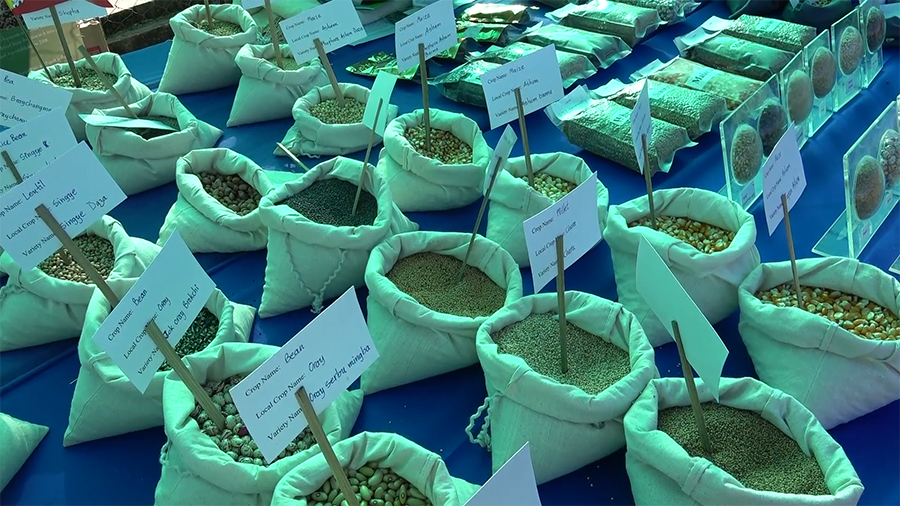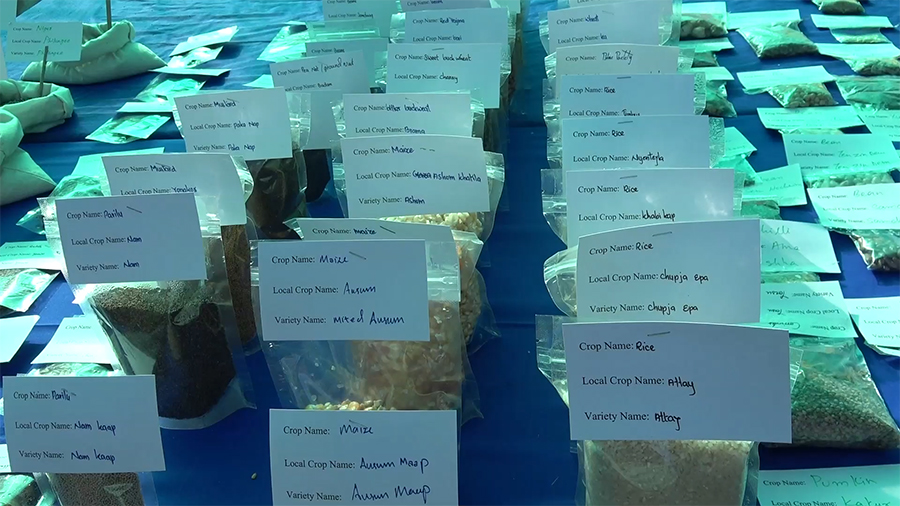
More than a thousand seed samples were collected and taken to the National Biodiversity Centre or NBC as a part of the 10th Biodiversity Fair held in Tsirang yesterday. The seeds are considered unique and rare in the country. They will now be conserved in the centre’s gene bank in Thimphu for sustainable use.
 At the fair, farmers from ten districts displayed seeds of various cereals, vegetables, and fruits. The seeds are rare and unique to the respective districts. NBC officials said these seeds are currently not in the centre’s gene bank. They added that there is a risk of the seeds getting extinct in the future if conservation efforts are not undertaken.
At the fair, farmers from ten districts displayed seeds of various cereals, vegetables, and fruits. The seeds are rare and unique to the respective districts. NBC officials said these seeds are currently not in the centre’s gene bank. They added that there is a risk of the seeds getting extinct in the future if conservation efforts are not undertaken.
 Some of the seeds include fox tail millet, kalo makai or dark maize, and chotay rice of Tsirang, aboriginal radish and spinach of Dagana, and dangphu ashom of Trashi Yangtse.
Some of the seeds include fox tail millet, kalo makai or dark maize, and chotay rice of Tsirang, aboriginal radish and spinach of Dagana, and dangphu ashom of Trashi Yangtse.
Asta Tamang (PhD), a Specialist from the National Biodiversity Centre said “We have collected the seeds from many gewogs but it is not enough when you collect once. You cannot capture all the diversity at one visit. So, this time we saw a lot of diversity that are not actually in the gene bank but that are present with the farmers. So we identified and we tagged those traditional or native varieties that are with the farmers but not collected and conserved in the national genebank for long term conservation.”
During the fair, farmers were awarded prizes for their efforts in showcasing species and varietal diversity, as well as for their commitment to maintaining and displaying unique or rare crop varieties. Those who presented the highest number of seed samples and the most distinctive varieties were also recognised for their contributions.
Farmers shared that such platforms allow them to exchange knowledge among different farming communities.
Amir Rai, a farmer said “Such fairs motivate us greatly. It allows us to learn about the crops being grown in other districts, exchange seeds, and, most importantly, help us preserve traditional, age-old varieties.”
Daw Dem, another farmer said “We are seeing a wide variety of seeds we did not know about before. This gives us the opportunity to collaborate with the government to help preserve these native crops.”
Established in 1998, the National Biodiversity Centre coordinates and implements biodiversity conservation and sustainable use programmes in the country. The centre organised the fair in collaboration with Tsirang District Administration with International Treaty on Plant Genetic Resources for Food and Agriculture’s financial support.
Pema Tshewang, Tsirang
Edited by Kipchu








